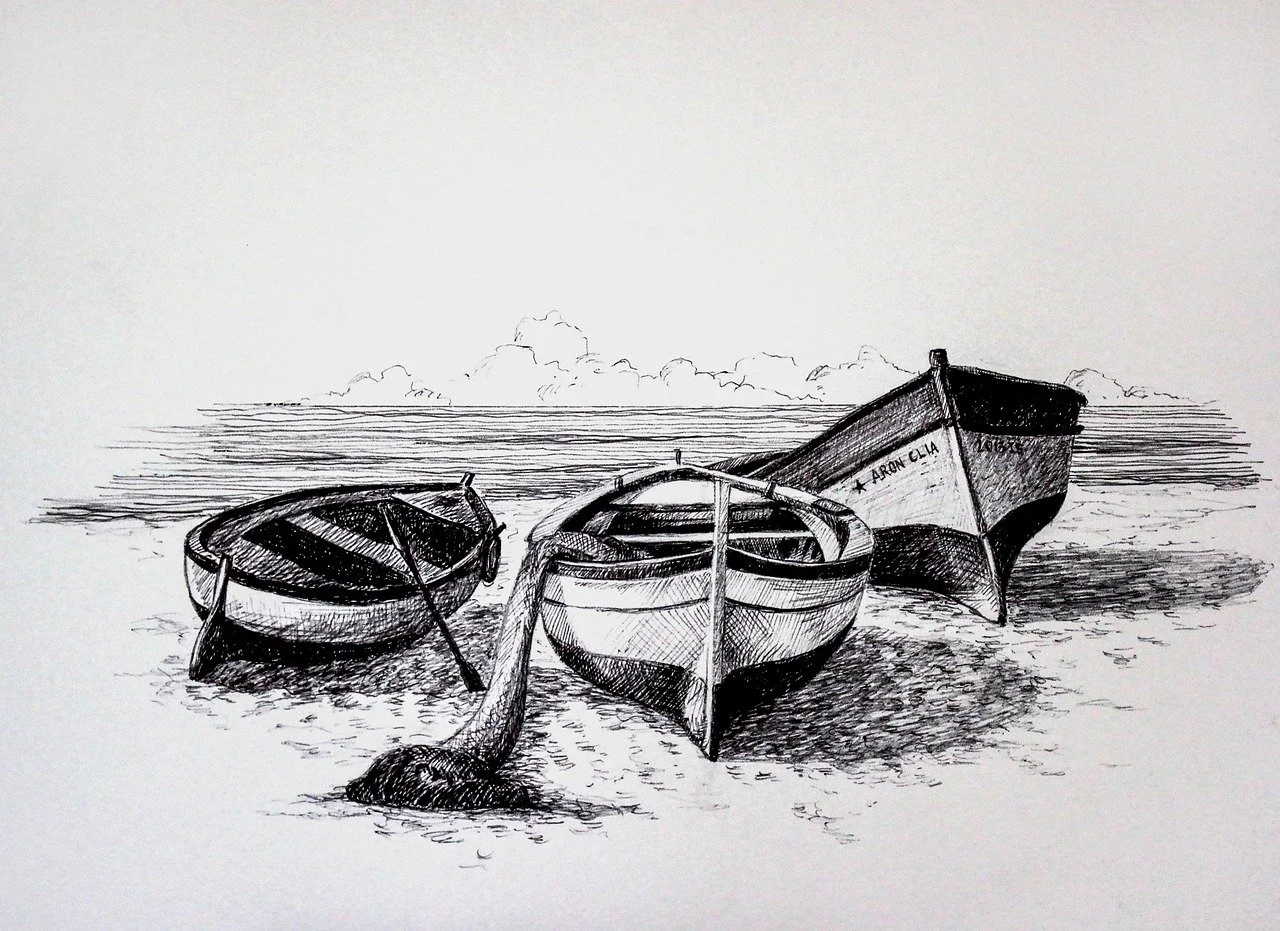
Waves Fall On Every Shore
Words By Jaime Gill, Art By Iessephoto at Pixabay
The boat skids and bounces across the sea in darkness, and Yasser has never been so frightened, for so long, before. In Syria, he cowered as bombs fell from the sky, heard the whistle of bullets just inches from his ear, was splashed by the blood of people he loved. But that all happened with horrifying speed. This night has felt endless, and though Yasser can swim a little, he’s never been on a boat or at sea, and knows he’s no match for these tireless waves. This small, rickety fishing boat feels flimsy as a toy in a bathtub, splashed around by a violent and invisible giant child. He thinks he may die tonight, that this quarter-century is all he’s been allotted—but he’d feel proud to die this way, fighting for a future. Better to die a hare in bounding flight than cower in a warren waiting for death.
Eleni wakes at 5 a.m. as she has every day for six months. As her feet touch cool tiles, her back protests. She defies the pain, forcing herself to stand up. She has found defiance a surprisingly effective strategy for dealing with old age. It has limits, of course. She can’t do much about death (which she senses sometimes, snuffling on her trail) but she can make it a difficult pursuit and she won’t be easy to swallow. She intends to stick in death’s throat: make it choke.
Dawn’s embers glow on the horizon and hope flares inside Yasser’s heart. He knows life isn’t a scary movie, and that death is no nocturnal creature waiting in the darkness: he’s eaten breakfast inside shaking walls as bombs struck and seen bodies steam in the street under midday sun. Yet an illogical, instinctive part of him insists the light is safer. He looks at his fellow refugees—two dozen, shaking with cold, fear or both—and some of their faces reflect his hope back at him.
The night dissolves above Eleni’s head as she packs her bicycle’s basket with water and biscuits. There were two weeks last summer when the boats came almost daily, and the whole island jittered with whispers of a new smuggling route targeting tiny Gavdos. But the boats are less frequent now, since the coastguards got wise and intercepted them at sea, arresting the smugglers and taking the refugees to larger, better-resourced islands. Eleni has read grim reports on the camps in those places, but time’s taught her what she can and cannot change. The boats may be fewer now, but Eleni goes to the shore every dawn, in case she is needed.
The smugglers shout and though Yasser doesn’t understand their Maghrebi dialect well, he sees the way their fellow Libyans start squinting North and knows someone must have sighted shore. Yasser can’t see it, but he can sense it. Greece. Europe. He’s waited so long to get here, travelled so far. In Damascus, he’d saved money by helping people with computers, cycling around neighborhoodas that had avoided bombing for long enough to have functioning Internet. Computers connected the world, and he hoped his IT skills might help him find a better, kinder place in it. Before he started on this journey, he’d been warned of its dangers, but he knew that staying in Damascus could be just as perilous, his hatred of the regime known. In a life full of dangers, you sometimes have to choose by the one your heart kicks hardest against.
Eleni cycles through the village in smudgy dawn light. She knows leaving this early won’t fool the villagers or silence those who call her eccentric. It won’t deter Mr. Patrakis, who warns her, and anyone else in earshot, that soft hearts like hers will ruin the island, will ruin Greece. Eleni leaves early because she knows morning is when most refugee boats arrive. She remembers her father, too, a fisherman lost at dawn in the same sea when she was small. Nobody waited for him on the shore. She’s carried that memory throughout her life: a sad, heavy, useless thing. Only in these last months has she found a use for it.
The smugglers are shouting again, causing tumult among the passengers. A Libyan woman translates for Yasser in urgent, simplified Arabic. A coastguard boat approaches from afar and the smugglers are turning back to avoid arrest. Yasser’s heart wails. It will take a year to save enough for this passage again and he’s so close. As the boat spins and water churns, he thinks he sees a blur of land. Before he can think, he heaves himself out of the boat and tumbles into the frothing waves.
As Eleni cycles along the Tripiti cliffs—where tourists pose for photographs at Europe’s southernmost tip—she thinks she sees something out at sea. She stops and stares out at the waves, but there’s nothing. Perhaps it was a trick of light, or a whale spouting. She wishes she had binoculars, then reminds herself they wouldn’t really help. Not even defiance could help her swim so far at her age, not to anyone so far out that she can’t see them with her own eyes.
Yasser is shivering and tiring despite clinging to an inflatable tossed by one of the other refugees as the boat raced away. He sees the island only in brief snatched moments before another wave crashes against his face, blinding him. His whole world contains just three things now: sea, Yasser, shore. He must live. He kicks, kicks, kicks.
Eleni sits under the cliffs in her usual spot, sheltered from the sun and its dazzling glare. Her heart jumps when she spies a disturbance out in the waves—a clumsy thrashing that can only be a person lost at sea. She sets down her flask of tea, walks to the shore, and wades out to meet a young man who is not her father, but could be someone’s one day.